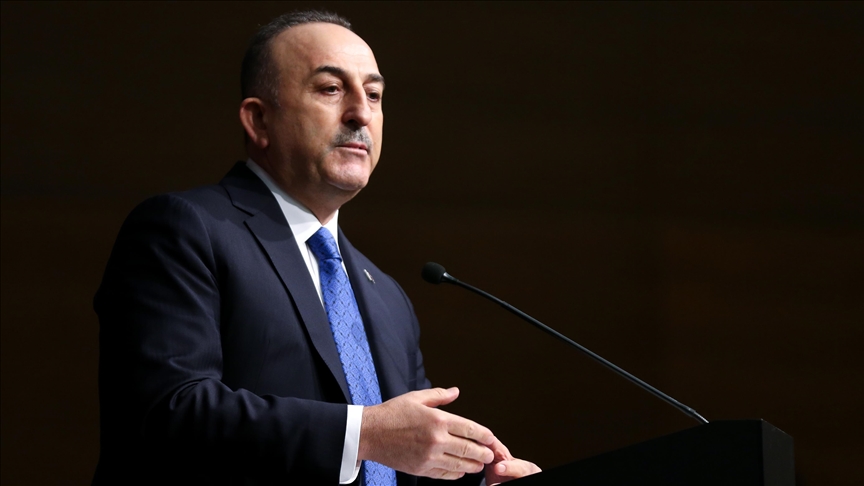The Russian attack on Ukraine will change many things not only in Europe, but also around the world, Turkiye’s foreign minister said on Thursday.
Mevlut Cavusoglu was speaking at the eighth Istanbul Mediation Conference with the attendance of high-level representatives of international organizations, including the UN Secretary-General Antonio Guterres, who sent a video message.
“Change is the main constant in international politics. What we need to do is recognize and adapt ourselves to change,” Cavusoglu told the conference.
Stressing that the post-Cold War euphoria is “long gone” and there is a “multi-polar world” now, Cavusoglu continued: “The Russian attack on Ukraine will change many things not only in Europe, but in the world.”
“Conflicts have already been on the rise across the world. Around 2 billion people are living in conflict zones,” he said.
Highlighting that conflicts are getting more complicated, Cavusoglu said: “Unfortunately, the international system cannot adapt to the changing security environment and new challenges.”
“And, we are all seeing this once again with the armed conflict in Ukraine,” he said.
Noting that he is neither a “pessimist” or an “optimist,” but a “realist”, Cavusoglu said: “We need to have a diagnosis of the real picture before starting treatment.”
“Conflicts cause humanitarian tragedy, harm international stability and increase distrust against the international system,” he also said.
Mediation for Peace
Turkiye announced the “Mediation for Peace Initiative” in the UN back in 2010 and established the Group of Friends of Mediation, the Turkish foreign minister reminded.
“We are proud to be the founder and the only country co-chairing Friends Groups in the UN, OSCE and the OIC at the same time,” he said, adding that these groups have “raised awareness.”
“They paved the normative ground with four UN General Assembly resolutions and three OIC Council of Ministers resolutions,” Cavusoglu noted.
“Later this month, under our lead, the OIC Foreign Ministers will adopt another resolution to further strengthen the OIC’s capacity in this field,” he said. “Similarly, discussions at the Istanbul Mediation Conferences have contributed greatly to the development of the conceptual framework in this area.”
Ways and means for putting mediation high on the agenda will be discussed during the eighth Istanbul Mediation Conference, according to Cavusoglu.
Message from UN secretary-general
In a video message sent to the conference, UN Secretary-General Antonio Guterres called on the world to come together to find a peaceful resolution of conflicts around the world.
The world should respond to the “gaps in our governance structures,” Guterres said, “by harnessing increased creativity and determination to find opportunities to resolve conflict through dialogue and mediation.”
“For example, addressing shared climate concerns can lead to collective action and confidence-building against the common foe,” the UN chief added.
“My report on our common agenda contains an urgent call for a new agenda for peace is includes investing in prevention, assessing regional capacities, and of course ensuring women’s full, equal and meaningful participation in peace processes,” he explained.
“We will continue to work with our partners, member states, regional organizations and civil society,” he said. “The success in mediation hinges on international support and political unity.”
“At this critical moment, let’s come together politically in support of the peaceful resolution of conflicts everywhere,” he added.
Source: AA



